#also searching for a new job that’s closer to school to cut the commute by half
Explore tagged Tumblr posts
Text

Ayo! Been busy with school so take a silly howdy drawing and a few doodles
School hasn’t even started yet but it’s already bustin my behind 😔


#welcome home#welcome home oc#procreate#howdy my beloved#howdy pillar#howdy pillar welcome home#black pearl cookie#cookie run kingdom#squish the goober#sona#cookie run#stardust cookie#doodles#school is much to expensive#three hundred dollars on books alone!#absolutely bananas I tell you!#bananas!!!!#also searching for a new job that’s closer to school to cut the commute by half#might be a barista soon! fingers crossed!!#ALSO guess who went from sociology major to a graphic design major#THIS GUY!!#immense joy#WampaArt
32 notes
·
View notes
Text
It’s Beginning To Look A Lot Like... (part one)
A/N: Day Two of the 12 Days of Christmas Fics featuring my first foray into writing for Benjamin and even though writing for him makes me nervous, I decided to go all in and take the three requests I got for this sugarplum, and string ‘em together into one big holiday mess. Starting off with the prompts from @suchatinyinfinity WHO IS CELEBRATING A BIRTHDAY TODAY!! Happy Birthday Dani! Hope you had a great day lovely!!
Word Count: 2,928
Prompt From: @suchatinyinfinity

“Don’t you dare throw that snowball at me. I’m warning you!”
“Don’t worry, I won’t let you fall.”
**here goes nothin!**
With a final heave, you cleared the last of the snow from the driveway, tossing it off to the side before you stuck your shovel into the sizable pile that you’d created. It had finally stopped snowing after three days of consistent flurries, the airy, dry flakes floating down like icy glitter, and amounting to much more than was predicted. You were caught off guard entirely by the storm, having only ever gotten this much snow in December once before, and after you’d finished panicking that the loss of time would cut into the to do list for the Christmas Eve party you’d be hosting, you’d actually found it quite lovely.
It had taken nearly an hour longer to get home on Wednesday night due to the weather, nearly doubling your commute from London, which felt like triple as your mother’s chiding tone filled your head. You know, most of your work is in London. Your family’s in London. It would make more sense for you to move back, really. You tightened your white knuckled grip on the steering wheel, your thick mittens slipping over the leather covering. Thanks but no thanks, mum. You thought to yourself, imagining the horror of surprise pop-over visits and the pressure for you to reciprocate them if you lived just a short tube ride away. You loved London, for all its culture and history. You’d grown up there, gone to school there, University, too. But when your first internship took you out to a church in the shore suburb of Southend-On-Sea to help restore an old bronze relief, you quickly learned that you also loved the slower pace and quirky charm that the town had to offer.
Before your tenure with that first job was through, you’d found a place to rent and followed the whim of your gut. You continued to commute into London 4 days a week, traveling as needed when your work took you to Leeds or Liverpool or any other corner of the UK, renting the same cottage all along until last year when the landlord sold it to you for a price that you couldn’t pass up. It was the only place you’d ever lived outside of your parent’s house, and now it was officially your home. Even crawling over the ice covered roads through this storm at a snail’s pace couldn’t keep the swell of pride from your heart or the smile from your face when you thought about how hard you’d worked for what you had. That feeling grew as it got closer and closer to Christmas- your first since the house belonged to you, the first one that you’d host your family for. The first one with Benjamin.
You’d already accepted that your great love affair would be with your career; that your passion wouldn’t be placed with a person, and the love that you had in your heart would be poured generously into the carvings and sculptures that you painstakingly restored. You were independant and you enjoyed being so, able to come and go without limitations, no one to complain about your long hours or about the lack of time you were spending with their family. So when you met Benjamin, you weren’t looking for him, and honestly he wasn’t looking for you either.
You were starting a new restoration in a library in London, a painted dome ceiling in the research room that depicted a deep navy sky full of silvery stars, constellations and celestial designs swirling overhead. After the library’s development director and the chairman of the restoration committee had given you the run down on the project, you’d asked to be allowed to spend some time studying the artwork. You liked to get acquainted with your work before you started digging. It helped you better understand what needed to be done, let you know what areas would need special attention. They’d agreed happily, nodding and shaking your hand, thanking you for taking on the work, astounded that you said you’d be done and out of their hair in just over a week. Once the door had clicked closed behind them, you slipped your shoes from your feet and climbed atop one of the long mahogany reading tables, laying on your back gazing up at the indoor sky.
I’ll need a sample of the plaster. You made mental notes of your observations, taking stock of what you’ll need to do to get started. Some paint chips so I can mix color to match. I’ll have to even out the- You sat straight up as the sound of the closed door opening pierced the silence followed by two hard soled shoes slapping the marble floor. Swinging your legs over the side of the table, you turned to face the door and the stranger that had just interrupted your prep list. “This room’s closed for-”
“Restoration?” He finished your sentence for you, adjusting his glasses so that they perfectly framed the spark in his dark eyes. “I know. Well, they’ve been talking about it for ages. I think I finally convinced them to get on with it when I brought them the piece of plaster that landed in my lap last week.” He smiled, stepping up to the table next to the one that you ocupied, setting his bag down and draping his jacket over the back of one of the chairs. “I made them promise that they’d let me work while the restoration was going on, and they said it would be fine so long as I cleared it with the restorer.” Rolling up the sleeves of his tan sweater, he leaned casually against the table, eyes sharply focused on you. “I’m Benjamin, by the way.”
You crossed your arms, slightly annoyed by the attitude of entitlement. What, does he think he’s the only arse to ever write a research paper? Special permission from the librarians...and now I’m the bad guy if I say no. You told him your name and that it was fine as long as he didn’t touch anything and stayed out of your way.
“You won’t even know I’m here,” he insisted, a grin pushing the tops of his cheeks up into his eyes.
And for the most part, that was true. You an Benjamin had worked in peaceful silence for the first three days, only breaking it with a “Good morning,” or a “see you tomorrow, then.” He’d come in and set himself up at one of the tables before disappearing into the stacks and not coming back out until his arms were full of titles that he hoped held the references that he could use to prove his thesis. Then he’d skim through them, searching each tome and typing up notes on a laptop that looked older than some of the books he was surrounded by. When the stack on his tabled had dwindled, he’d dive back into the sea of information to pull out more pearls. Taking a break around noon for lunch, he’d be back in less than half an hour, back at it and armed with a cup of tea.
You would get there before him, climb the scaffolding that your team had sent over, and arrange the tools that you’d be using that day. Spatulas and brushes of all sizes, chisels and hammers, paints, plasters and adhesives laid out before you for easy access. You’d know Benjamin was there when you heard the door open, and he’d know you were there from the metallic clanging of tools and the dull scraping of caked on residue. By the third day you’d cleared most of the damaged surface of the mural, leaving large portions of the ceiling exposed and unpainted. I’ll start the base layers tomorrow. Cleaning your tools, you dangled your legs over the edge of the scaffolding, looking down at the library and the only other person in it. You’d expected him to be pompous and cocky after he basically demanded access to a closed section of the library. But as you watched him more closely you realized that he was just dedicated to his work, to learning and to absorbing as much knowledge as was possible, and that was something that you understood and respected. So when he invited you out to grab dinner with him on day four- “Not a date or anything. You can pay for yourself and all, just,” You’d laughed at his offer to let you buy your own damn meal and he shrugged. “People need to eat, right?” - You’d said yes and actually found his conversation as enjoyable as his silence.
You weren’t looking for Benjamin in the patterns of the painting that you were bringing back to life. He wasn’t searching for your name among the millions of words that he scanned. But somehow you’d found one another despite having both closed yourselves off to anything but your work and accomplishments. Four days turned into ten, the two of you sharing dinner three more times before your contract was finished. You’d continued to meet up with him when you were in London for work, and eventually, just as unexpectedly as you found him, you found yourself in a relationship with him- one that worked because he wasn’t jealous of your career and you weren’t sick of hearing about his endless research topics.
He’d been hesitant at first, sharing that he’d just been through a divorce and that he certainly didn’t want another one. You’d shared just the opposite- a severe lack of any long term or meaningful relationship to draw experience from. “We’re genuine rubbish at this, aren't we?” He posed the question through a smile that lit his whole face, and you agreed with a laugh that he cut short with a kiss. When the last four months of his lease ran out, he left his flat in the city and moved in with you, insisting on splitting all household costs evenly despite your considerably larger salary. You knew that money and the fact that he’d been accused of using his ex-wife for hers played a role in the destruction of his marriage, so you understood his need to put those accusations to rest before they could crop up again. He’s protecting this. You appreciated the proactive move, even though he’d already shown you in plenty of ways that he was only interested in you. Truthful and honest, and all in due, natural time. That’s how it was, learning Benjamin; when he was ready, he’d show you another piece of himself, the way the pieces you worked on slowly revealed their original beauty.
You were good for one another, and happy together, supporting the other’s endeavors, nurturing thought and becoming the best, strongest, most complete versions of yourselves. “All I had to do to find you was give up on romance entirely,” he joked one night as he held you close in the dark.
You playfully smacked his arm, his chest rumbling with laughter beneath you.“Oh, just what any woman wants to hear right after-“
He brushed the hair away from your ear and pressed his lips to your skin. “I wish I’d have thrown in the towel sooner.”
That was roughly two weeks ago, and the precise moment that you knew that you loved him. But the next morning you were leaving for work, and you didn’t want to drop that word and walk away from it, from him, so you held onto it as tightly as you held onto the steering wheel upon your return home. The light by the door flicked on as your tires crunched over the gravel, and before you’d put the car in Park he appeared on the front step. Hi, B. You smiled, already feeling some of the tension built up from the drive leaving your body. You saw him stoop down, assuming that he was fixing his boot, and you gathered your things and got out of the car.
“Hey, you, welcome home,” he said, arms folded behind his back. “I missed you.”
“Missed you too, Benjamin.” His cheeks twitched when you said his name, like they always did. You sighed, adjusting the shoulder strap and swiped a snowflake away from your eyelashes. “I’m glad to be home. That was such a stressful drive. The roads are terrible, and all I could think about was how much I still need to do before Christmas Eve.” You hadn’t noticed that he was walking towards you, focused instead on the fact that yours was one of the only houses without lights yet. “We have to do the lights and all the baking and the indoor decorations and-”
“I took care of some of the decorations inside,” he said, surprising you. “You know, lights on the banister and,” he shrugged. “Relax, we’ll get everything done. I promise. Soon as this snow stops we’ll get the lights up and,” he was finally close enough to touch you, and he reached for your waist to drag you closer. Your foot hit a patch of ice obscured by the fresh powder and you felt yourself slipping when his arm tightened. “Don’t worry, I won’t let you fall,” he said as you clung to him. But as sturdy as his words were, they couldn’t help the fact that you were going down. “Not without me right behind you anyway,” he laughed, wrapping you up so that he took the brunt of the fall, cushioned by the snow. You joined in, feeling the remaining tension disappear.
“How do you do that, Benjamin, hmm?” You kissed the corner of his eye, the skin crinkling under your lips. “How do you make me feel better so easily?”
He swallowed, eyes dancing over your face to read every change in your expression. “It’s because I... “ He pulled you fully onto his chest before he continued. “It’s because I love you.”
The night twinkled above you as snow fell in your hair and on your clothes, covering trees and shrubs, sidewalks and streets. But you were warm from head to toe as you saw the love he spoke about swimming in his eyes. “I love you, too,” you told him, so happy that you’d waited until you got home. Worth the wait.
He pulled you into a kiss that felt different from any other. You could taste the word love on his tongue and feel it in the way that his body responded to yours, hips and shoulders, arms and chest. When you finally pulled back from lack of oxygen, you sat up and started to extend your arm to help him off the ground and into a hug, when you saw him cock his arm back, a compact white ball in his hand. It hadn’t been his boot he was stopping down for earlier. He’d armed himself with a snowball, carrying it over and dropping it right next to himself before hitting the ground with you. Sneaky trickster.
“Benjamin,” you warned, the serious tone hard to hold from the happiness that you felt. “Don’t you dare throw that snowball at me.” His devilish grin only grew. “I’m warning you,” you scooted backwards, scooping up a ball of your own. “Don’t start a war now.”
He smiled and narrowed his eyes before tossing the snowball behind him. It landed with a soft thud in the snow. “Nah,” he said, standing up and brushing himself off before reaching down to help you up. His hands wrapped around yours. “We’ve got too much to do,” he pulled you closer and pressed his lips to your ear, like he did the last night you’d spent together. “And you said you love me, so,” without warning he changed his level and picked you up over his shoulder. “I think that’s a conversation worth continuing.” He set you down laughing on the front porch. “I think we should continue it upstairs.” He leaned in again, nose brushing yours as he took your face between his palms and kissed you. “In bed.”
Three days of bad weather kept you out of the cold and in one another’s arms, basking in that shift in your relationship, the one that neither of you wanted, expected, or thought possible. You finished the decorations, Benjamin’s arms never too far from your waist during the day, the two of you curled in the window seat with separate books at night. On the third day, the sun finally came out to shine on the facets of frozen wonder that blanketed the world around you, and the two of you grabbed your shovels to clear the walkways and areas that you’d need to access in order to hang the outdoor decorations. Sticking your shovel into that pile of snow you’d cleared, you took a breath, watching Benjamin clear the pathway that lead to the garage. It was still the same house, the same garage and the same pathways. It was the same home you’d had for years. But now Benjamin was a solid part of that home, of your life. You tried not to get too far ahead of yourself. There was still plenty for the two of you to learn about one another. But you knew that Benjamin was a smart man, and you knew he didn’t throw words away like trash. If he said love, he felt love, simple and easy as that. He waved over to you with one gloved hand, the other still holding the handle of his shovel. You beamed and waved back at him. I can’t wait to learn more about you, B.
.
.
.
@something-tofightfor @its-my-little-dumpster-fire @suchatinyinfinity @thesumofmychoices @gollyderek @malionnes @becs-bunker @warriorqueenofnarnia @elanor-of-imladris @traeumerinwitzhelden @songtoyou @michellemybelles-world
#benjamin greene#gold digger fanfic#benjamin greene x reader#benjamin greene x you#12 days of christmas fics#part one of three#because i'm an idiot and everything has to be a series.#who said that?
52 notes
·
View notes
Text
The One Where I Become a Product Reviewer
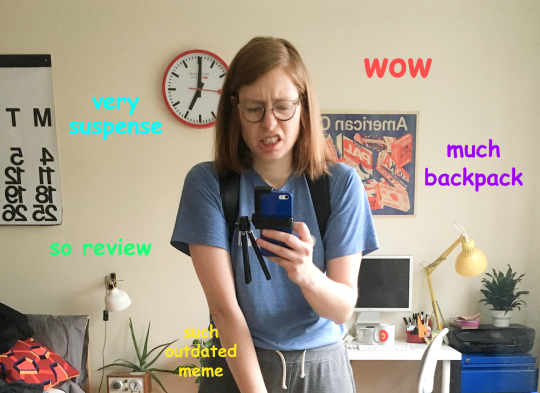
Hey there, fellow kids! Jumping on the already-parked annual back-to-school bandwagon, I bring to you an AWESOME new blog post highlighting my FAVOURITE 15″ LAPTOP BACKPACK PICK! Get ready for at least 145 paragraphs of preamble before I reveal this NUMBER ONE TOP 100% BEST 15″ LAPTOP BACKPACK PICK and DIY BACKPACK HACK!!
I also realised I needed a post in my “lifestyle blog” repertoire that might convince people to send me free products? So this is that post. Search engine optimization.
Backstory
On February 19, 2019, esteemed letterer and all-around Creative Professional Jessica Hische tweeted out that she was looking for a new, fashionable laptop backpack and wanted suggestions. I happened to see this tweet that night and thought, “Maybe I, myself also a Creative Professional, need a new, fashionable laptop backpack as well?” I read through the mostly terrible (???) suggestions from her followers, saw one I liked, and then, with the quick late-night text approval of my probably-drunken sartorial consultant T, impulse-bought a $235 backpack.
The Arrival
A week later The Backpack arrives. It’s partially leather! It smells very new! It’s literally made by a Creative Professional for Creative Professionals! It’s so nice that I’m already worried about ruining it with thoughts of biking or commuting. But the straps are kind of stiff and uncomfortable on my delicate mammary glands. And did I say it’s pretty expensive?!
It’s the kind of backpack I’d be happy to keep if it were, say, $79. Maybe even $89. But $235?! For a backpack that’s not even some sexy upscale Creative Professional household brandname?? My lower middle-class upbringing prevents me from committing to such an expenditure on which I’m only lukewarm. What to do?
The Virgo/Libra Cusp Solution
Obviously I go out and buy two more backpacks.
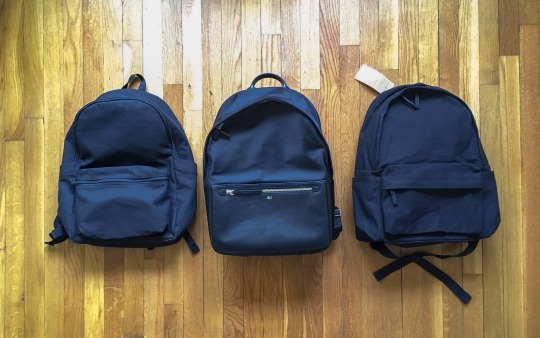
All my children.
On Being a Virgo/Libra Cusp-er
I’m on the Virgo/Libra cusp which makes me the perfect person to review anything because I’m really picky and really indecisive. This means that if I’m forced to make a decision about anything, I generally change my mind multiple times and lose sleep in the process of over-thinking every minute detail, what fun! (For the record, I’m also strictly adhering to the deeply-scientific, back-of-your-local-free-weekly astrology column definitions of these signs. [Also, unnecessary childhood trauma story, I never really knew how to astrologically-identify growing up because as a cusper my sign categorization changed from paper to paper? The struggle was—and I cannot stress this enough—real.])
Laptop Backpacks: Necessary?
“Why does one need a special laptop backpack?” you might ask. Obviously, you don’t. No one needs anything. Why do we buy things, to feel a brief sense of happiness or accomplishment in our lives? Does it work for you the way it definitely and always 100% works for me? Leave your response in the comments!
But also I’ve never had a bag that was made for a laptop, so I figured I should probably get a backpack that's actually functional and isn’t painful to carry heavy shit around in all day?
Criteria
In order to be considered for this review, a potential backpack had to meet the following criteria:
Must hold a 15″ MacBook Pro
Enough padding to protect that laptop without a case
Must be comfortable to use while biking
Unisex design
Is black/screams “Creative Professional”
Bonus points: also screams “... who deserves a large salary”
In addition to my a laptop, I assembled a weight/capacity testing control group with the following everyday accessories:
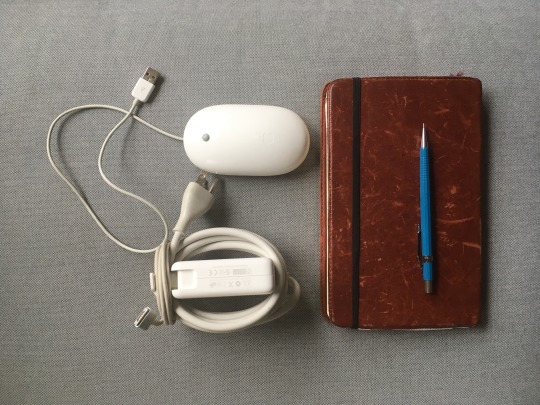
Work essentials: mouse, laptop charger, Moleskine notebook, pencil

Life essentials: overnight kit, moisturizer, deodorant, underwear, sports bra, water bottle
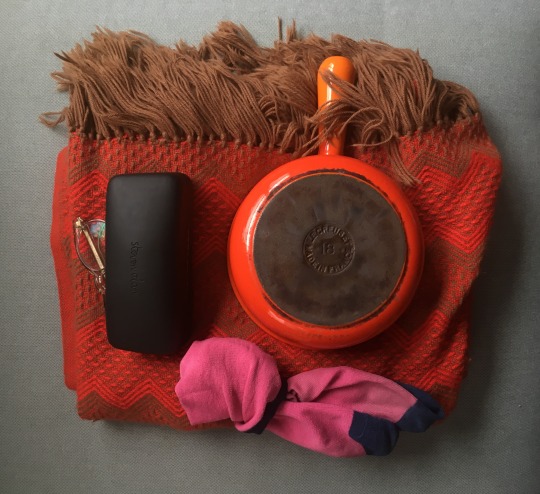
Um, glasses and some other crap: eyeglasses & case, dirty socks, folded blanket, Le Creuset 18cm cast-iron pot
🎒🎒🎒🎒🎒🎒🎒🎒 The Backpacks 🎒🎒🎒🎒🎒🎒🎒🎒
Bag option #1: The ISM Backpack
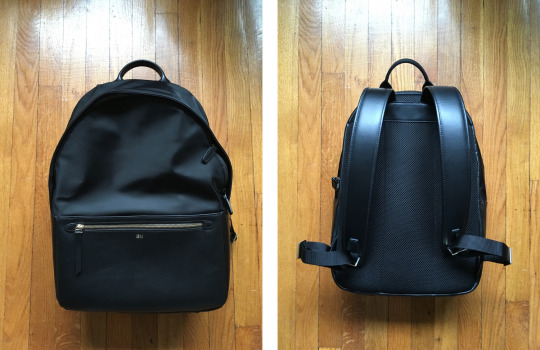
The ISM retails for $235 USD; it’s only available online but comes with free shipping and returns in the USA. It ships in a pretty box with a pretty branded dust bag and a bunch of tissue that smells of “Instagram unboxing moment”.
I wore this bag out in public a few times: to the work lounge at the Public Hotel (a hotspot for “cool-looking people” working remotely), to pay a visit to my old MoMA office, and to a job interview. Did I feel like a Creative Professional? You bet I did! But then my former coworker commented that the bag made me look like a “techy person”, which ruined everything it had going for it. (There is a fine line between Creative Professional and Startup Chic that I refuse to cross. It involves hoodies.)
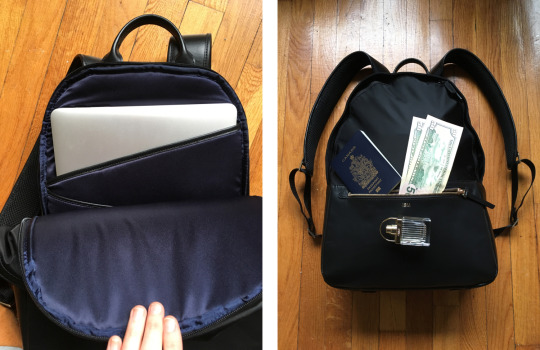
Left: fancy regal satin lining, to remind you that you’re the millennial queen you are. Right: full bag, with front pocket that is great for fitting flat stuff and maybe only flat stuff.
It fit everything in the “capacity” control group, albeit quite snugly, but its real downfall was the straps: although they were quite hearty, being both wide and well padded (which would be great for those with flat chests), their stiff sturdiness meant they were very inflexible, and basically cut into my breasts any time I raised my arms together, as one would if biking:
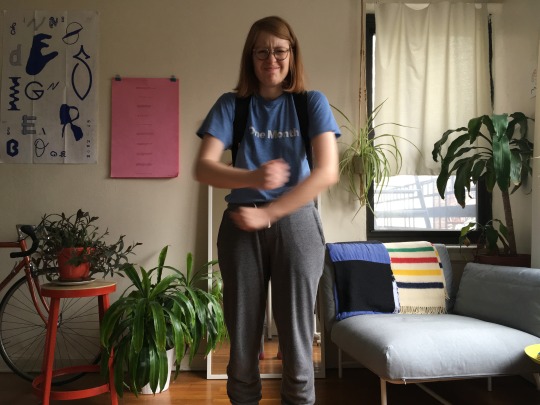
MEINE POOR BOOBS.
ISM owner/designer Justin emailed me after I returned the bag, and explained they were working on a smaller version for 13″ laptops. I explained this doesn’t help people with mammary glands who own 15″ laptops. Per Justin:
I feel what you mean Christy, a bag that fits a 15" laptop and is unisex has been a tough design challenge given the size difference between males and females. We have been able to shorten the straps to accommodate though.
I get it. Designing for the fact that 50% of the population has boobs is hard! Did you know that basically everything is designed around men and their stupid bodies?? It's also subsequently a prime example of how e-comm genders backpack sizing: you’ll find that 15″ laptop bags are generally only found in the “Men’s” section of websites. I need a drink.
Pros
Looks and feels fancy
Separate laptop pocket from main compartment
Water and weather resistant
Good amount of padding everywhere
Real leathurrrr bottom
Bitches be loving gold zippers
I am weirdly very into the simple strap adjustment design (not pictured but trust me that it’s nicely done)
Cons
High price point for my feeble income
Cut into my boobs
Front pocket is pretty difficult to put stuff in due to being so flat
Makes me look like a tech bro
Did not get the job I interviewed for while using it
Rating
Comfort: ★★☆☆☆ Creative professional-ness: ★★★★★ Female compatibility: ★☆☆☆☆ (one star for gold zipper) Value for monies: ★★★★☆ (if you don’t bike or have boobs) Overall: ★★★☆☆
🎒🎒🎒🎒🎒🎒🎒🎒 Bag option #2: MUJI Water Repellent Backpack
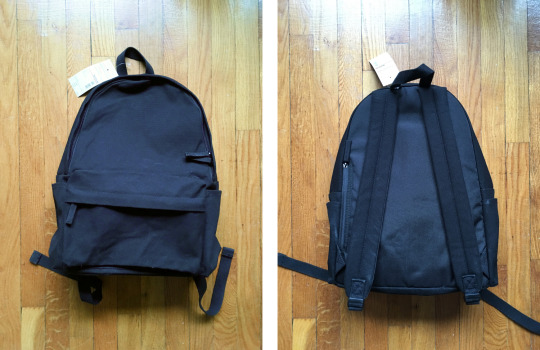
I bought this bag at the MUJI store for a very reasonable $49 USD. Like everything MUJI, it’s pretty decent quality both in materials and design, and feels like it’ll last a while.
Unfortunately, I didn’t end up testing this “in the real world” because, whoops, it only comfortably fits a 13″ laptop. But I did uncomfortably fit my 15″ laptop inside, really stretching the limits of the side panels, and then managed to cram the test “capacity” content on top (with room to spare!). I then did a “hunch test”, folding myself over as one would on a road bike, and found that there was barely any padding on the back panel, and my spine was knocking against the hard surface of my computer. Not cool! Plus the back did not have a mesh surface, literally making it not cool on a sweaty back.
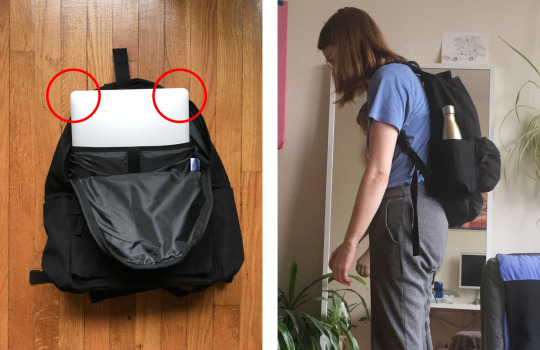
Yes I get it, I have a big stupid computer.
Pros
Nice quality
Large capacity
Water repellent
Has a secret little back pocket you’ll probably never use
Has those tacky side pockets for water bottles which are surprisingly handy for sunglasses or pocket chargers
Cons
Made for a 13″ laptop
Non-meshed back
Not enough back padding
Rating
Comfort: ★★★☆☆ Creative professional-ness: ★★★★☆ Female compatibility: ★★★★★ Value for monies: ★★★★★ Overall: ★★★★☆+
🎒🎒🎒🎒🎒🎒🎒🎒 Bag option #3: UNIQLO Water Repellent Backpack
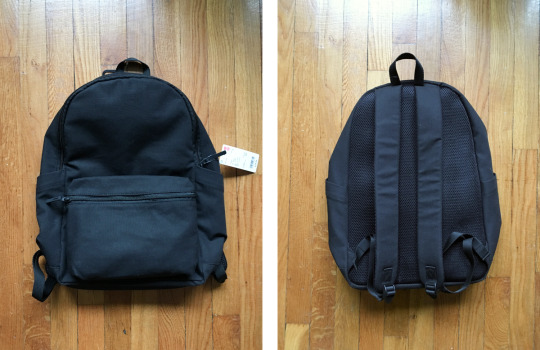
Right after purchasing the MUJI bag I walked across the street and picked this up for $29.90. YOLO!
Realising that is was yet another bag made for 13″ laptops, I could immediately tell that the quality was much lesser than MUJI’s: it was much lighter in weight, and the fabric thinner. Look at those ugly shoulder straps where the fabric is bunching. The front pocket’s structure is so weak that it sags. Sad!
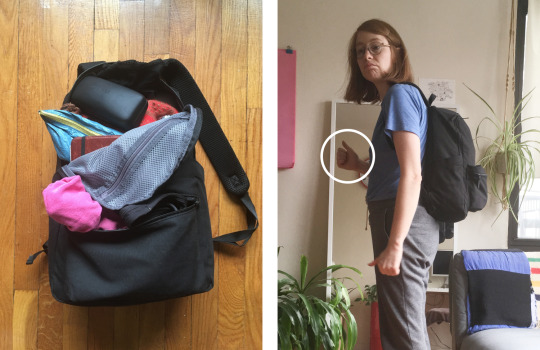
But: pretty good akshully?!
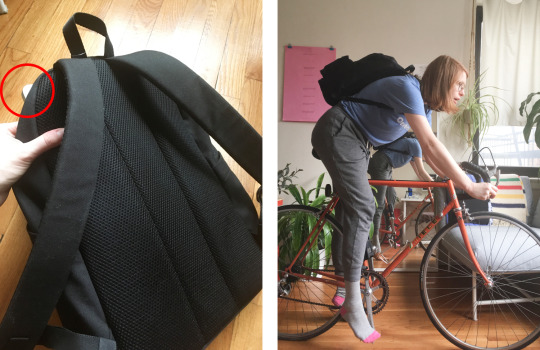
I again force-fit my behemoth laptop and belongings into the small frame, yet, contrary to expectation, this thing was comfortable AF?! And even had room to spare. The straps were super soft and cushy and malleable around my boobs, and the “hunch test” revealed amazingly thick layers of padding on two sides of the back panel, with a thinner center panel that relieves any pressure on your spine. What kind of ugly genius is this?
Pros
Stupidly comfortable
Large capacity
Water repellent
Again, tacky side pockets, this time with an angled top hem
Cons
Made for a 13″ laptop
Pretty cheap and ugly looking
Pretty cheap and ugly feeling
Rating
Comfort: ★★★★★ Creative professional-ness: ★★☆☆☆ Female compatibility: ★★★★★ Value for monies: ★★★★☆ Overall: ★★★★☆
🎒🎒🎒🎒🎒🎒🎒🎒 Other opshuns, you ask?
There’s a few other mid-range “nice” bag brands I was looking into online, such as the one which esteemed Creative Professional Jessica Hische ended up going with, but let’s just assume I left them out because they lack the quality needed for this rigorous assessment and not because the bag designer whom I went on a date with decided to ghost me after I sprained my ankle while in Canada. Ahem.
Final Verdict... and a Backpack Hack (!!) (...Backhack™?!)
Although I was quite impressed with the comfort the UNIQLO model provided (both to my body and my wallet), I was actually going to declare this experiment a failure and return all the backpacks. Until, that is, I took a closer look at the interior construction of the UNIQLO and MUJI bags: they measured as though they should be tall enough for my latop, and yet the MacBook corners stubbornly stuck out. Time to play detective! 🔍
Turning the bags inside-out, I noticed they both included a superfluous, space-reducing seam at the bottom of the main pocket. WTF.
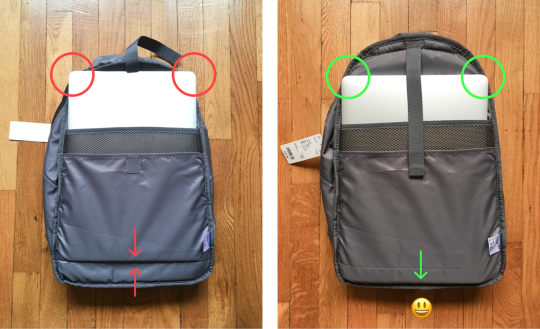
UNIQLO bag before & after: the difference a simple seam (and lack of colour temperature matching) makes!
By removing this seam on the UNIQLO model, I gained a full inch of vertical room, ALLOWING THE 15″ LAPTOP TO ACTUALLY FIT IN THE DAMN BAG. Yes, it fits snugly, and some may argue that the superfluous seam protects the edge of the computer from hitting the ground, but the very bottom edge seam is actually pretty bulky and does a decent job of protecting as is.
Verdict: With the inclusion of this super deviant hack (and ONLY with this inclusion), UNIQLO wins!!!!!!!!
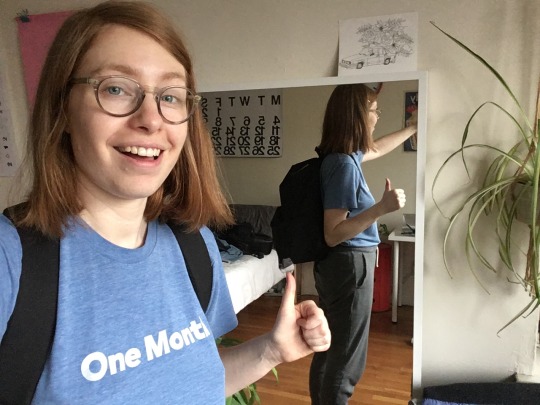
Epilogue
I’ve been using this bag for 7 months now. It looks kinda cheap and it tends to collect lint, but my shoulders are miraculously like never sore. And, even on a grocery run after stuffing a myriad of pokey-shaped food items in the thing until I can barely close it, it’s always very comfortable on my tender back when biking home (I did this very thing 2 weeks ago at the Farmer’s Market after buying Celine Dion tickets, because I am a white woman in her late 30s).
Oh, also: it’s black, so yes I am a Creative Professional, thank you for noticing!
TL;DR: UNIQLO; cheap; comfortable. Send me your products to review! 🔚
Colophon backpacks: ISM, UNIQLO, MUJI; socks: UNIQLO; t-shirt: from a Women Who Code meetup hosted by One Month; sweatpants: Alternative Apparel; laptop: Shmapple; glasses: Steven Alan clearance; stool: Target; plants: IKEA & Home Depot; blankets: Hudson’s Bay, E. Stocking; mirror & couch: IKEA; drawing above mirror: K. Freeman & P. Lyle; posters: Bruce Nauman and a Finnish Design Annual fold-out; calendar: Massimo Vignelli; bike: Miele; weight/capacity control group: thrifting, Peru, Amazon, HAY, more places; suddenly questioning the consistency of whether I’m listing where objects were bought or the brand name of the object itself: something I am going to pretend to resolve at a later date in time; brevity rating for this blog post: ★☆☆☆☆; fan appreciation: I am so sorry if you read this far
#product review#backpacks#UNIQLO#ISM#MUJI#review#diy#hack#padding#seam removal#laptop#macbook pro 15"#knapsack#computer bag#SEO
2 notes
·
View notes
Text
Should You Go Back to the Office?

After months of experimenting with remote work, your company is calling you back to the office.
Should you go?
“It’s been weighing on me,” Christina Marcellino, a 34-year-old business development manager for a law firm, says of the back-to-work question. It’s all her working-mom friends in Charlotte, N.C., can talk about. “What is it going to look like? What are we going to do?”
The calculus is complicated, even if you’re comfortable with your employer’s plans for Covid safety. Some companies will, at least ostensibly, give workers a choice; others will ratchet up the pressure or dole out ultimatums. How much do you push back? How do you decode corporate statements to tell you what you really want to know: Will it kill my career if I stay home? NEWSLETTER SIGN-UP Careers & Leadership Get ahead and stay informed about careers, business, management and leadership. PREVIEW SUBSCRIBE The other variables to analyze feel infinite, the stuff of life: that workout you can now sneak in each morning, the leisurely walk to the bus stop with your kid, the exodus of $15 sad desk salads from your lunch routine. But also, wasn’t the chatter and camaraderie at the office the thing that made work feel…almost fun? Who can even remember at this point? The good news—and the bad news, for the indecisive among us—is that we’re in a unique moment.“There’s never going to be a better time to make the pitch to your company,” says Ed Voelsing, founder of the Rivet Group, an executive recruiting and talent-consulting firm in the Charlotte area. “ ‘Allow me to work remotely.’ ”Workers, dreading back-to-office orders, have approached Mr. Voelsing in search of permanent telecommuting jobs. One client moved to Ohio during the pandemic and doesn’t want to give up his new life: cheaper, closer to family.Mr. Voelsing recommends that employees tread lightly if they’re early in their careers. The office is where you learn by osmosis, tout your work and occasionally get pulled into a random meeting with higher-ups.“You get to state your opinion in front of a whole bunch of executives who now know who you are,” he says. PHOTOS: The evolution of office spaces, as told through popular films and TV shows 📷 VIEW PHOTOS20TH CENTURY FOX/EVERETT COLLECTION Consider how much leverage you have: How rare and revenue-generating is your skill set, and how hard would it be to replace you right now? Are you open to taking a pay cut if it means you can stay remote? How would you feel if your career stagnated a bit down the line because you couldn’t ascend away from headquarters?Some 43% of 1,046 remote workers surveyed by insurer Prudential in March said they’d be nervous about their job security if they stayed home while others returned to in-person. Yet the data indicates many of us really don’t want to go back, at least not every day. Nearly nine out of 10 workers in the same survey said they want to work from home at least once a week after the pandemic subsides; one in three said they wouldn’t work for a company that forced them to be on-site full-time. WHAT’S NEWS 📷Should You Go Back to the Office? 00:00 1x SUBSCRIBE Bethany Goldszer quit her previous job, with a nonprofit in Queens, N.Y., after leaders called everyone back to work last June. Now conversations are bubbling up at her new employer, a charter school where she’s been working remotely, about returning to five days in-person come fall. Ms. Goldszer made a pro and con list about what staying home would mean: no frantic mornings trying to find parking on city streets, no daily tolls—but also the possibility of “people even forgetting that I exist.”The sticking point was the prospect of having to make her commute a high priority as she begins house-hunting on Long Island.“I’m tired of making decisions like that,” she says. “I don’t want where I work to factor in.” She floated her remote-work pitch by a board member, who she hopes can advocate for her when it’s time to make a formal request.Then again, is having no commute the answer? Harvard Business School professor Ashley Whillans says preserving some sort of physical transition between work and home helps us set boundaries. During the pandemic, many filled the time gained from killing their commutes with more work.“People feel like they have to be chained to their desks all the time,” Dr. Whillans says. Evaluate your remote work experience: Are you capable of maintaining separation and avoiding burnout? Or have you spent the
past year logged on at all hours, stressed and miserable? SHARE YOUR THOUGHTSHow flexible should workplaces be about allowing employees to work from home right now? Join the conversation below.Gaetan DeSimone, a graphic designer and animator in Easton, Conn., kept a journal chronicling how he was adjusting to remote work and using his extra time. There was the bonus hour with his toddler daughter in the mornings, the ability to pop out to his new garage studio when inspiration struck at 2 a.m., and then head out for a bike ride the next day when he couldn’t focus. His company left it up to him to decide whether to start coming into the Manhattan office. Still, “there’s that looming concern of, what if one day they change their tune?” he says.Gaetan DeSimone has been working from his garage studio during the pandemic.PHOTO: GAETAN DESIMONE 📷 He asked his manager if staying remote would affect his future opportunities. When he said no, Mr. DeSimone’s decision was made.How you’ve adjusted to remote work is only one piece of the puzzle. How did the people around you do with remote work?“Was your boss extra hypervigilant, calling you every five seconds?” asks Joyel Crawford, a Philadelphia-area executive coach. Maybe showing up at the office will boost trust and actually buy you some more autonomy.Ethan Tyler, pictured with his daughter, Rebecca, and wife, Margaret Tyler, is looking forward to returning to his office in Anchorage, Alaska.PHOTO: ETHAN TYLER 📷 If you’re the manager, consider whether it’s easier for you to lead meetings and rally the troops over Zoom, or in a conference room. Over the past month, Ethan Tyler, a corporate affairs director in Girdwood, Alaska, started to notice that some tasks were falling through the cracks on his remote team.“I’ve just felt this kind of a disconnect,” he says.When the group met up at a local restaurant recently, they were able to swiftly outline projects and divvy up work. Conversation felt less awkward.Mr. Tyler was excited to hear his company was bringing everyone back at least three days a week starting in June. He can’t wait to get in his car and make the hourlong trip to his Anchorage office.How serious is your company about remote work?Will staying home hurt your chances for promotion? Will leaders reverse course in a year, ordering you back? Tips on reading the risk, from professor Ashley Whillans:Office downsizing: If your company is shedding real estate, that could be a sign that it’s committed to a flexible model of working.Hiring from afar: Are new employees from around the country onboarding into fully remote roles? Or has the company been focusing on recruiting local talent in the past several months? If it’s the latter, executives might be switching gears.Signals from the boss: Pay attention to what leaders are doing, not saying. “Do you see your bosses Zooming in from their offices?” Dr. Whillans asks.Subtle perks: Is your company offering things like free lunch to those who come back? That’s a sign they want you there.
0 notes
Text
Relocating For Work? You’ll Need This Essential Relocation Checklist.

The Essential Checklist for Relocating for a Job
Moving for a job is a major decision -- you’re uprooting your whole life to take the next step in your career. Whether you’r moving your entire family, moving closer to family, or going it alone, there’s plenty to be excited about … and even more to plan! Between the pay raise and the up and coming art scene you’ve heard so much about, it’s easy to stay excited about that move. Don’t lose sight of those things, because there will also be a lot of logistics to sift through, and those aren’t so much fun (unless you’re the Marie Kondo type). For the rest of you, take a deep breath. You’re going to get through this just fine! As long as you take care of the essentials, everything else will fall into place in good time. So what are those essentials? We’ve made a quick list of essentials to knock off your list for a smoother transition to your new home. Negotiate Relocation Support Many companies offer relocation benefits that include living stipends, airfare, moving and hauling expenses and temporary housing until you can find your home. Some companies even provide job search support for your spouse if you are moving together. Speak with HR about relocation benefits that are available to you. You may be surprised how much of your moving budget is already covered. We recommend negotiating relocation benefits first, so you can fit that support into your moving budget. Create Your Moving Budget Moving expenses can add up, especially if you don’t have a clear idea of what you need. Take some time to sit down and research moving budgets to get an idea of what you can afford, and where you can cut expenses. Remember to use your resources like friends and family when you need supplies. Moving supplies are often the most costly expense for a move, so take advantage of used boxes and pay attention to what you already have in your home that can be used as a packing material. Additionally, get really clear on the food part of your move. You have to east, so if you want to make room for takeout and cooking at home, determine what’s the most realistic and plan from there. Some nights you’ll just want to order a pizza and not feel guilty about it. Make room for that in your budget. Envision the Transition In many ways, you’re starting your life over, which means there’s plenty of room to envision what you want your new life in your new home to look like. As you envision the decor and your daily routines and commute, consider where you may run into some pitfalls or obstacles. Is traffic more congested where you’re moving? Do you live far away from your office? Where are your kids’ schools, can they take the bus or ride their bikes? It will help to walk through your daily routine and look for these potential obstacles or new experiences. Then you can properly plan for them. Take time to also be realistic about the transition. While you may usually make your kids’ lunches each morning, that’s probably not in the cards the first few weeks. You may also need to get used to taking public transportation rather than driving to work if your car is delayed from being hauled across the country. So what solutions can you come up with? Pay for a public transportation pass. Sign students up for hot lunches for the first month of school. You’ve got this!
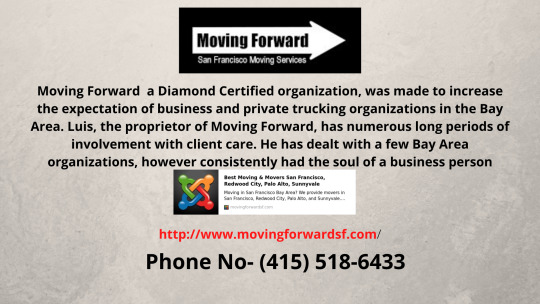
Prepare Travel Arrangements How far is your home from the airport? Will you need to take a cab or will the train work out just fine? What time will the movers arrive and will you be able to meet them on time? These are all details to consider as you make your travel arrangements. Not only are you the one traveling, but all of your belongings are traveling too, likely in a moving truck right behind you. Make plenty of time to coordinate flights, travel time, and the moving truck. Ideally, everyone and everything will arrive around the same time. If you need to get the key from a real estate agent or landlord, make sure they are available to you upon arrival. You don’t want to be standing out in the cold with all of your moving boxes while you wait for a key! Research Your New Neighborhood A new neighborhood means new routines, new amenities, and new opportunities! What opportunities are in your new neighborhood? Consider your current daily routines and the shops and stops you rely on. Is the post office by your house? Is there a local tavern to meet up with new friends? Is there a coffee shop where you can grab a latte or catch up on work? Can you walk or do you need to drive? Where is the nearest pharmacy? How about the nearest grocery store? Map out the stores, parks, gyms and other essentials community spots you will likely visit on a weekly basis. Then you won’t have to scramble to find them when you arrive. You can get a sense of your new routine--where you stop for dinner supplies after work, where you attend yoga, where you take the kids out for the birthday dinner, that kind of thing. This is incredibly helpful if you have young children, because if you know where things are, they will feel liess shaken up by that lack of routine. Start Connecting with People Hop online and start connecting with people at work or in your neighborhood. Sign up for apps like Nextdoor and Meetup to find out what’s going on in your neighborhood. Don’t hesitate to join a new exercise class or community center. You never know where your new friends are hanging out! This is also a great time to try something new that you thought your old friends might judge you for back home. Embrace a new you and finally sign up for martial arts or pottery. Who knows, your new kindred spirit could be sitting right next to you. Hire a Reliable Moving Company If there’s one thing you need perfectly taken care of, it’s packing and hauling your belongings. Make sure to give yourself plenty of time to vet companies for credibility, reliability, coverage, and customer service. Check their Yelp page and take a look at the BBB profile as well. Look out for moving companies without websites of who will not do an in-person quote. Pay attention to hidden fees too. Ask as many questions as you can about where you may be charged extra for something. Common fees include: long distance moving, handling bulky items, moving insurance, storage, cancellation, and disassembly or re-assembly. Conclusion Here at Moving Forward, we believe moving is a chance to start fresh and build a life the way you want it. Congratulations on this big step in your life, and try not to lose sight of those exciting things as you begin to dive into the move. When you’re ready to discuss packing and hauling, give Moving Forward a call. We’ll set you up with a free quote and a few tips about moving that we’ve gathered over the course of our careers.
San Francisco Movers
#San Francisco Movers#San Francisco Moving#Redwood City Moving#Redwood City Movers#Palo Alto Moving#Palo Alto Movers#Sunnyvale Moving#Sunnyvale Movers
0 notes
Text
Wondering if it’s a good time to buy or sell a home?

Find out what’s ahead for the housing market and how the real estate process has changed in my latest article.
Traditionally, spring is one of the busiest times of the year for real estate. However, the coronavirus outbreak—and subsequent stay-at-home orders—led many buyers and sellers to put their moving plans on hold. In April, new listings fell nearly 45%, and sales volume fell 15% compared to last year.[1]
Fortunately, as restrictions have eased, we’ve seen an uptick in market activity. And economists at Realtor.com expect a rebound in July, August, and September, as fears about the pandemic subside, and buyers return to the market with pent-up demand from a lost spring season.[2]
But given safety concerns and the current economic climate, is it prudent to jump back into the real estate market?
Before you decide, it’s important to consider where the housing market is headed, how it could impact your timeline and ability to buy a home, and your own individual needs and circumstances.
WHAT’S AHEAD FOR THE HOUSING MARKET?
The economic aftermath of the coronavirus outbreak has been severe. We’ve seen record unemployment numbers, and economists believe the country is headed toward a recession. But people still need a place to live. So what effect will these factors have on the housing market?
Home Values Projected to Remain Stable
Many Americans recall our last recession and assume we will see another drop in home values. But the 2008 real estate market crash was the cause—not the result—of that downturn. In fact, ATTOM Data Solutions analyzed real estate prices during the last five recessions and found that home prices actually went up in most cases. Only twice (in 1990 and 2008) did prices fall, and in 1990 it was by less than one percent.[3]
Many economists expect home values to remain relatively steady this time around. And so far, that’s been the case. As of mid-May, the median listing price in the U.S. was up 1.4% from the same period last year.[4]
Demand for Homes Will Exceed Available Supply
There’s been a shortage of affordable homes on the market for years, and the pandemic has further hindered supply. In addition to sellers pulling back, new home starts fell 22% in March.[5] In fact, Fannie Mae doesn’t foresee a return to pre-pandemic construction levels before the end of 2021.[6]
This supply shortage is expected to prop up home prices, despite recessionary pressures. Fannie Mae and the National Association of Realtors predict housing prices will rise slightly this year,[7] while Zillow expects them to fall between 2-3%.[8] Still, that would be a far cry from the double-digit declines that occurred during the last recession.[9]
Government Intervention Will Help Stabilize the Market
Policymakers have been quick to pass legislation aimed at preventing a surge in foreclosures like we saw in 2008. The Coronavirus Aid, Relief, and Economic Security (CARES) Act passed by Congress gives government-backed mortgage holders who were impacted by the pandemic up to a year of reduced or delayed payments.[10]
The Federal Reserve has also taken measures to help stabilize the housing market, lower borrowing costs, and inject liquidity into the mortgage industry. These steps have led to record-low mortgage rates that should help drive buyer demand and make homeownership more affordable for millions of Americans.[11]
HOW HAS THE REAL ESTATE PROCESS CHANGED?
As the pandemic hit, real estate and mortgage professionals across the country revised their processes to adapt to shifting safety standards and economic realities. While these new ways of conducting business may seem strange at first, keep in mind, military clients, international buyers, and others have utilized many of these methods to buy and sell homes for years.
New Safety Procedures
The safety of our clients and our team members is our top priority. That’s why we’ve developed a process for buyers and sellers that utilizes technology to minimize personal contact.
For our listings, we’re holding online open houses, offering virtual viewings, and conducting walk-through video tours. We’re also using video chat to qualify interested buyers before we book in-person showings. This enables us to promote your property to a broad audience while limiting physical foot traffic to only serious buyers.
Likewise, our buyer clients can view properties online and take virtual video tours to minimize the number of homes they step inside. Ready to visit a property in person? We can decrease surface contact by asking the seller to turn on all the lights and open doors and cabinets before your scheduled showing.
The majority of our “paperwork” is also digital. In fact, many of the legal and financial documents involved in buying and selling a home went online years ago. You can safely view and eSign contracts from your smartphone or computer.
Longer Timelines and Higher Mortgage Standards
The real estate process is taking a little longer these days. Both buyers and sellers are more cautious when it comes to viewing and showing homes. And with fewer house hunters and less available inventory, it can take more time to match a buyer with the right property.
In a recent survey, 67% of Realtors also reported delays in the closing process. The top reasons were financing and buyer job loss, but appraisals and home inspections are also taking more time due to shifting safety protocol.[12]
Securing a mortgage may take longer, too. With forbearance requests rising, lenders are getting increasingly conservative when it comes to issuing new loans. Many are raising their standards—requiring higher credit scores and larger down payments. Prepare for greater scrutiny, and build in some extra time to shop around.[13]
IS IT THE RIGHT TIME FOR ME TO MAKE A MOVE?
The reality is, there’s no “one size fits all” answer as to whether it’s a good time to buy or sell a home because everyone’s circumstances are unique. But now that you know the state of the market and what you can expect as you shop for real estate, consider the following questions:
Why do you want or need to move?
It’s important to consider why you want to move and if your needs may shift over the next year. For example, if you need a larger home for your growing family, your space constraints aren’t likely to go away. In fact, they could be amplified as you spend more time at home.
However, if you’re planning a move to be closer to your office, consider whether your commute could change. Some companies are rethinking their office dynamics and may encourage their employees to work remotely on a permanent basis.
2. How urgently do you need to complete your move?
If you have a new baby on the way or want to be settled before schools open in the fall, we recommend that you begin aggressively searching as soon as possible. With fewer homes on the market and a lengthier closing process, it’s taking longer than usual for clients to find and purchase a home.
However, if your timeline is flexible, you may be well-positioned to score a deal. We’re seeing more highly-incentivized sellers who are willing to negotiate on terms and price. Talk to us about setting up a search so we can keep an eye out for any bargains that pop up. And get prequalified for a mortgage now so you’ll be ready to act quickly.
If you’re eager to sell this year, now is the time to begin prepping your home for the market. A second wave of infections is predicted for the winter, which could mean another lockdown.[14] If you wait, you might miss your window of opportunity.
3. How long do you plan to stay in your new home?
The U.S. real estate market has enjoyed steady appreciation since 2012, which made it fairly easy for owners and investors to buy and sell properties for a profit in a short period of time. However, with home values expected to remain relatively flat over the next year, your best bet is to buy a home you can envision yourself keeping for several years. Fortunately, at today’s rock-bottom mortgage rates, you can lock in a low interest rate and start building equity right away.
4. Can you meet today’s higher standards for securing a mortgage?
Mortgage lenders are tightening their standards in response to the growing number of mortgage forbearance requests. Many have raised their minimum credit score and down payment requirements for applicants. Even if you’ve been prequalified in the past, you should contact your lender to find out if you meet their new, more stringent standards.
5. Is your income stable?
If there’s a good chance you could lose your job, you may be better off waiting to buy a home. The exception would be if you’re planning to downsize. Moving to a less expensive home could allow you to tap into your home equity or cut down on your monthly expenses.
WHEN YOU’RE READY TO MOVE—WE’RE READY TO HELP
While uncertain market conditions may give pause to some buyers and sellers, they can actually present an opportunity for those who are willing, able, and motivated to make a move.
Your average spring season would be flooded with real estate activity. But right now, only motivated players are out in the market. That means that if you’re looking to buy, you’re in a better position to negotiate a great price. And today’s record-low mortgage rates could give a big boost to your purchasing power. In fact, if you’ve been priced out of the market before, this may be the perfect time to look.
If you’re hoping to sell this year, you’ll have fewer listings to compete against in your neighborhood and price range. But you’ll want to act quickly. Economists expect a surge of eager buyers to enter the market in July—so you should start prepping your home now. And keep in mind, a second wave of coronavirus cases could be coming in this winter. Ask yourself how you will feel if you have to face another lockdown in your current home.
Let’s schedule a free virtual consultation to discuss your individual needs and circumstances. We can help you assess your options and create a plan that makes you feel both comfortable and confident during these unprecedented times.
The above references an opinion and is for informational purposes only. It is not intended to be financial advice. Consult a financial professional for advice regarding your individual needs.
Sources:
1. Forbes
2. HousingWire
3. Curbed
4. Realtor.com
5. Money.com
6. Fannie Mae
7. HousingWire
8. HousingWire
9. Federal Reserve Bank of St. Louis
10. Consumer Financial Protection Bureau
11. Bankrate
12. National Association of Realtors
13. Forbes
14. Washington Post
Reposted from LinkedIn
0 notes
Note
help! i have no idea how to juggle work and school. i think everyone at work basically hates me because i come in at the most erratic times (i try really hard not to) and school is hard because when i get home all i want to do is go to bed. i thought taking online classes was a smart idea, because i wouldn't have to suffer in commute so much, but im just suffering so much more now!! how do i balance everything out while battling add and depression?
Greetings, my friend,
It might help to look at the positives as well though – look at the things you’re doing to improve your life! You’re taking classes, you’re working, and you’re thinking about the ways you can do these things without it being too stressful or difficult. It’s okay if it’s not working out quite that way yet. Sometimes this takes trial and error.
Now, for concrete suggestions…I don’t know what you’re currently doing about your work timing, but it doesn’t seem to be working. So, obviously, you need to try something else, right? Like I said I don’t know what you have already tried, but a few possibilities might include…
- setting your alarm a little bit earlier (I’m talking maybe 5-15 minutes, not something drastic like an hour) to give yourself more time in the morning.
- Some people also find success with setting their clocks AHEAD a few minutes, e.g. you see 12:30 on your clock but it’s really 12:25 or some other slightly earlier time. It tricks you into being early.
- Some morning when you don’t have to rush off to work, get up and pretend that you do, then time your morning routine to see how long it actually takes. (Even better, do this a few times so you get an idea of how long it takes when, say, you struggle with motivation because of the weather or bad mood, or when you forget where you put something you need and have to search for it, etc.). You can compare this to your current actual morning routine to see what adjustments you need to make to your scheduling (e.g. just how much earlier do you really have to get up?)
- Is there any way to simplify or streamline your morning routine? e.g. maybe you can switch dog-walking duties with someone else, or switch the dog’s walk schedule to the evening. Maybe you can simplify your makeup routine so you don’t have as much to do. Maybe you can lay out things like your outfit, your morning medicines, and anything you have to pack for work the night before. Obviously not all of these will be relevant to you (or maybe they are), so just use them as a jumping-off point for figuring out what you might be able to change.
- Set a series of alarms to help you move along in the morning.
- If you’re not currently on a regular schedule at work (e.g. some mornings you are scheduled to come in at 8, others at 10), think about asking your boss for a more regular schedule. It might help you establish a routine. Or, if you already have a regular schedule, consider asking your boss if there can be some adjustments to your schedule (e.g. maybe 8am is too much of a challenge right now but 9am is more doable, and then of course you would have to stay an hour later as well).
The same basic idea will apply to your schoolwork as well – if the current system isn’t working, you have to find ways to change the system. For example, maybe it would be a good idea to find someplace near your work (like a library or cafe) where you could do your school work right after your job. Then you avoid the temptation to immediately go to bed when you get home. If you have friends who are also studying, maybe you could get together with them for a study session once or twice a week. It might be worth it to consider taking classes on campus instead of online next semester, just to see if it makes a positive difference (if not, you can always go back to online classes later).
If you have a therapist who is already working with you, it would be a good idea to talk to them about what’s going on and see if they can offer any other solutions more tailored to your specific situation. If not, maybe this is a good time to consider trying therapy out. Again, if it doesn’t help, you don’t have to keep doing it.
If you can’t find any solutions with these kinds of changes, then you might have to take the more drastic option of cutting back on something entirely. For example, maybe you could take one less class, or drop a couple of hours of work each week. If your situation allows, you might also consider finding a new job closer to home or to your school (if you decide to take classes on campus), so you don’t have as much commuting to do. While there are downsides to this (e.g. less income, changes to your financial aid status at school), the mental health trade-off might be worth it.
In any case, my friend, I hope that is helpful!
-- Aragorn
2 notes
·
View notes
Text
Discussion Article November 18
Why Fukuoka is Japan’s most innovative city
Sandwiched between the mountains and the sea in Japan’s far-west corner, Fukuoka is a city trying to reinvent itself. In a land long dominated by mega-conglomerates and the inexorable pull of Tokyo, the country’s fastest growing urban centre wants to become Japan’s answer to Silicon Valley.
Despite the country’s reputation for hi-tech wizardry, Japan’s start-up scene remains surprisingly stunted. The world’s third largest economy has only one “unicorn” – a private company valued at over $1bn – compared to the United States’ 127 and China’s 78.
Fukuoka’s charismatic young mayor is determined to change that, and he’s convinced the city has the ingredients to replicate the success of the US’s west coast innovation hubs. In 2011 he declared Fukuoka would become Japan’s start-up city, and since then it’s risen to the top of the country’s business creation league tables.
Whether it can truly rival the capital remains to be seen as funding and talent continues to concentrate in Tokyo, but the city’s leaders have a convincing pitch. A tight-knit start-up community, a young workforce and an affordable city that promises that elusive goal of a work-life balance – something they hope will appeal to a new generation of entrepreneurs keen to avoid the Tokyo rat race.
Fukuoka's local government has established a city-wide low-power communication network that helps local companies to test their hi-tech products
Shortly after being elected as the city’s youngest ever mayor in 2010, former TV presenter Sōichirō Takashima, 44, visited Seattle and was struck by the similarities to his hometown. Both are compact coastal cities surrounded by nature, with well-developed transport infrastructure and plentiful human resources, he says. In Seattle those ingredients support titans like Amazon and Microsoft, as well as a thriving start-up ecosystem. Takashima believes Fukuoka can replicate that success and help drag the Japanese economy out of a rut it’s been in since the early 1990s.
“The presence of start-ups which create new innovation and value is necessary to break economic stagnation,” he says. “With that in mind, I positioned start-up support as our city’s growth strategy.”
Since then he’s been busy. In 2014 the central government granted his request to designate the city as a “national strategic special zone” for start-ups, which has allowed them to cut corporate taxes for new businesses and create a special visa for foreign entrepreneurs. It’s also allowed them to relax planning rules so they can redevelop the city centre and wireless regulations to create a faster and simpler licensing process for experiments and technology demonstrations aimed at the Internet of Things (IoT), which embeds sensors, communication and computing hardware into everyday objects.
Takashima has also been aggressively promoting the city at home and abroad, leading business delegations and signing cooperation deals with start-up hubs like San Francisco, Taipei and Helsinki which provide support and introductions for Fukuoka start-ups looking to expand abroad or foreign start-ups looking to enter Japan.
Back in Fukuoka, the government has renovated an old school in the central Tenjin business district to create Fukuoka Growth Next (FGN), a one-stop shop for budding entrepreneurs which opened in 2017. “Simply put, our mission is to raise future unicorns,” says Yasunari Tanaka, director-general of the FGN secretariat.
Facilities include discounted office space, a prototyping lab, a start-up cafe where consultants provide free business, legal and accounting advice, and the Global Startup Centre to help foreign founders set up in Fukuoka or local entrepreneurs expand abroad. There’s also a bar to lubricate the networking process and a regular schedule of talks, seminars and matching events to link start-ups with customers and investors.
Locals in Fukuoka attend a festival at the Toka Ebisu shrine and pray for good luck and success in business in the year to come (Credit: Edd Gent)
While the city’s first unicorn is probably still some way off, there’s been encouraging progress. The initial goal for FGN was for tenants to raise 500m yen (£3.37m) by September 2018, but they smashed that target, raising 7.1bn yen (around £50m). Fukuoka also has the highest new business creation rate (the percentage of companies newly registered in a year) in the country at 7%, well above Tokyo’s 4%.
The city has some strong fundamentals in its favour. Japan’s ageing population and shrinking workforce are causing politicians and economists sleepless nights, but Fukuoka is the fastest growing city in the country, and has the highest proportion of young people. Rent is about 60% of that in Tokyo and the city is closer to Seoul and Shanghai than the capital, leading it to be seen as Japan’s "gateway to Asia".
That combination is what prompted Fukuoka native Yasuhiro Ide to transfer the headquarters of his e-commerce business New World back to his hometown. He’d moved to Tokyo in 2015 in search of business opportunities, but last year he decided his goal of expanding into China would be easier from Fukuoka. “In Fukuoka it's easy to recruit engineers and designers who are low cost and office costs are less,” he says. “And if I want to go to China it’s two hours by plane. From Tokyo it’s four.”
The compactness of the city also means the entrepreneurial community is both tight-knit and diverse, says Hashimoto Masanori, CEO of software company Nulab and a veteran of Fukuoka’s start-up scene. That makes team building and networking much easier. “If I go drinking I will bump into someone at a related IT company,” he says. “In Tokyo I go to community events and it’s only programmers, but in Fukuoka I go to these events and I meet programmers, designers, marketers.”
Another key plank in the government’s pitch is the city’s “liveability”. The international airport is a 15 minute metro ride from the centre and commutes are short, with walking or cycling to work common. You’re never far from nature with mountains looming at the city limits and picturesque beaches a short drive away. “Fukuoka is more laid back,” says Tanaka. “If you want to seek a good work-life balance Fukuoka is a very attractive city.”
That was what drew French entrepreneurs Yasmine Djoudi and Thomas Pouplin to settle in the city.
They first came as part of a student exchange program and when they decided to launch their start-up Ikkai, an online platform for students to find short-term work, they chose to stay in Fukuoka rather than move to Tokyo
“The lifestyle here is really nice,” says Djoudi, adding that the lower costs were also a major boon when starting out. “We didn't regret it, because we realised that the burn rate is way lower. We couldn't have done half of the things we did in Fukuoka if we went to Tokyo.”
The pair were the first recipients of the city’s start-up visa and helped shape the application process. Pouplin admits that language barriers and inflexible regulations still make Japan a tricky place for outsiders but he says Fukuoka is ahead of the curve in making things easier for foreign founders.
Fukuoka may be attractive for start-ups, but as the businesses mature, many decide to set up new offices in Tokyo (Credit: Getty Images)
The city’s re-branding has generated significant buzz in both the domestic and foreign press, but despite the positive coverage two key ingredients remain in short supply – talent and funding. There’s limited venture capital available in Fukuoka, says Pouplin, so when start-ups grow they generally have to head to the capital for investment and customers. “Fukuoka is a great starting place, but it's not a great growing place,” he says.
One of FGN’s most successful graduates is Skydisc, which uses artificial intelligence to help customers boost factory productivity and has been pegged as a “future unicorn” by financial newspaper The Nikkei. Overseas strategy officer Yoshihiko Suenaga is full of praise for the city government’s approach and says their time at FGN opened a lot of doors. “They gave us cheap rent and a lot of opportunities,” he says. “We actually met one of our partners as well as one of our big clients at a matching event there.”
But he admits they are only staying in Fukuoka because it’s the founder’s hometown. Their operation is now split between Fukuoka and a Tokyo office that opened three years ago because most of their clients’ headquarters are located there. Talent was also a big driver – while it’s possible to find competent developers in Fukuoka, more advanced technical skills are concentrated in the capital. “AI-focused engineers are relatively difficult to find in places other than Tokyo,” he says.
In an attempt to coax this kind of talent to the city the government recently declared itself an “engineer-friendly city” and followed up with recruiting events in Tokyo. But even Fukuoka’s brightest find it hard to resist the pull of the capital, says Suenaga, who spent 15 years in Tokyo himself. He hails from neighbouring city Kitakyushu and only returned due to family reasons. “After graduating you’ve got no choice but to go to Tokyo,” he says. “That’s the regular mindset.”
That’s not to say perceptions of Fukuoka aren’t changing in the capital. Shun Nagao, who runs the Tokyo office of global venture capital firm White Star Capital, says in the last two years there’s been a lot more buzz around the city thanks largely to the mayor’s efforts. It’s still seen as a relatively immature ecosystem though, he adds.
“I don't think there's an understanding about what Fukuoka excels in,” he says. He thinks the city needs to do a better job of branding, pointing to Kyoto, which has developed a reputation as a hotbed for hardware start-ups by building an ecosystem around the world-class Kyoto University and the city’s big electronics companies like Kyocera, Omron and Rohm.
One major opportunity for the city, says Nagao, is its proximity to Asia, which could allow it to attract talent from abroad rather than going toe-to-toe with Tokyo. But in terms of attracting more funding, he thinks there needs to be some clear success stories or big valuations before investors commit serious resources to the city.
Fukuoka is considered one of the most "liveable" cities in Japan (Credit: Alamy)
That’s something officials in Fukuoka recognise, but they’re also aware that laying the groundwork for that kind of success takes time. Their current target is to create one hundred start-ups worth 1 billion yen (£6.8m) in the next five years, says Naokatsu Matono, director of the city’s start-up department. “To make a unicorn we believe first we need many start-ups,” he adds. “In the future, our goal is to help one of those one hundred companies become a unicorn.”
And the city isn’t resting on its laurels. FGN closed down for a revamp at the end of March and when it relaunches under new management in May it will team up with a well-known international start-up accelerator to mentor and help fund a new batch of start-ups.
The government is also in the process of creating an ambitious new “smart city” – an urban area that uses technology like IoT and data analytics to enable smarter service in areas like transport, utilities and government – on a 124-acre former university campus within Fukuoka, just 2.5 miles (4km) from the centre.
Typically these kinds of projects end up on greenfield sites far from urban centres or layer technology on top of existing infrastructure, says Kouichi Matono, who is leading the project. This smart city will be unique because it will be built from scratch in the heart of the city with the infrastructure and technology developed in unison.
Demolition work has already started, and the government plans to partner with a consortium of companies to create an open source test-bed for advanced technologies like 5G, driverless vehicles and telemedicine. The aim is to spur the creation of many new start-ups, says Matono, and act as a proving ground to show the rest of the country how to use technology to solve Japan’s most pressing problems.
“We are trying to create a new lifestyle not just buildings,” he says. “Japan has a lot of issues. The number of old people is growing and we have a small birth rate so we’re going to have problems with labour and healthcare. That’s why we want to use new technology like AI and IoT to solve these issues.”
Developing the ecosystem of talent, expertise and funding required to support the kind of “living lab” the mayor has previously said he want to turn Fukuoka into will take time. But the city’s unique combination of entrepreneurial energy, quality of life and a supportive government makes it as good a place as any for those trying to build a more liveable future.
0 notes